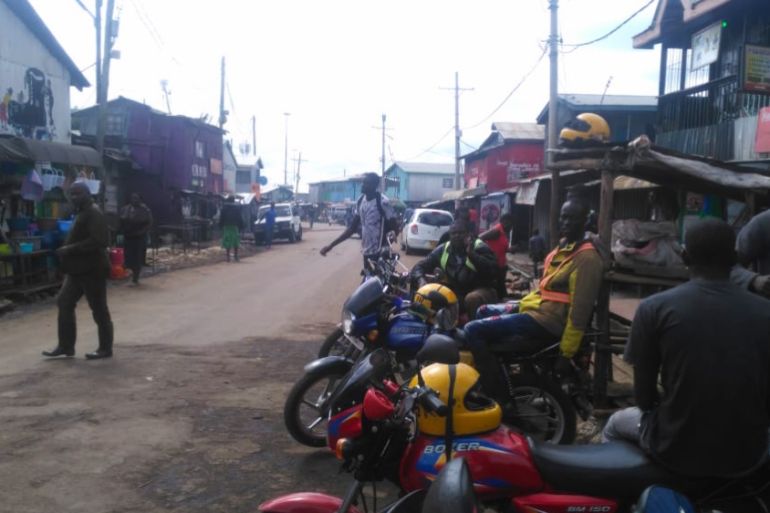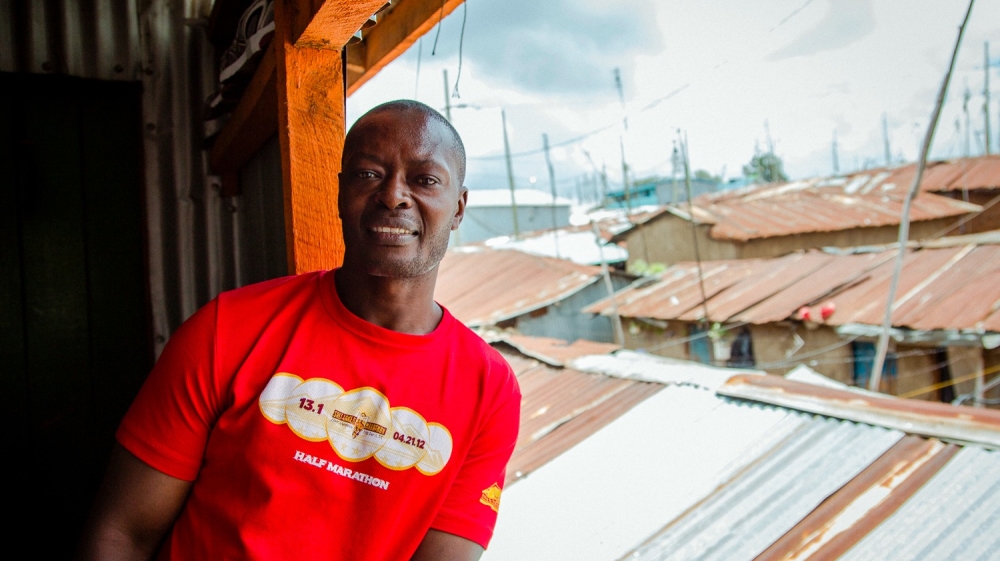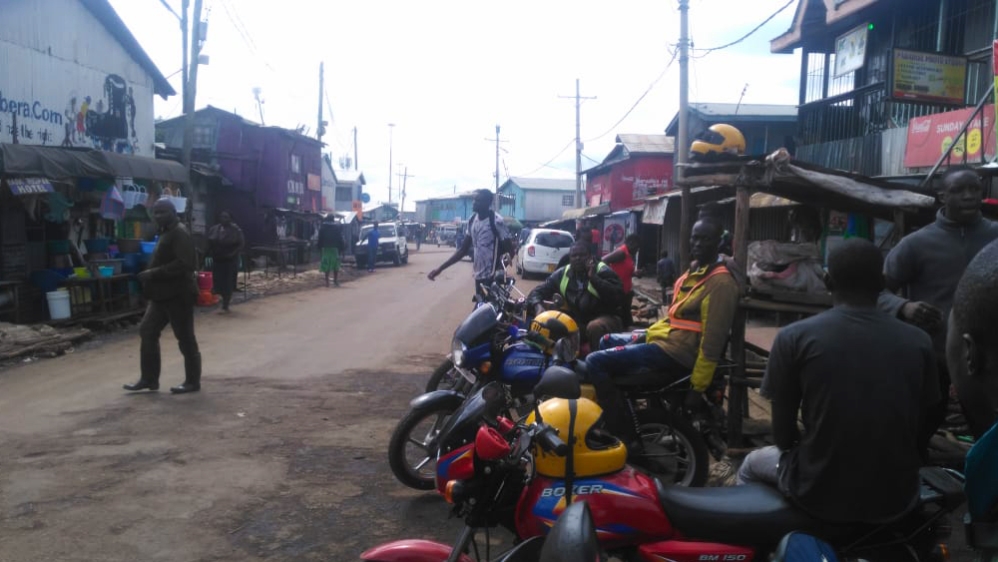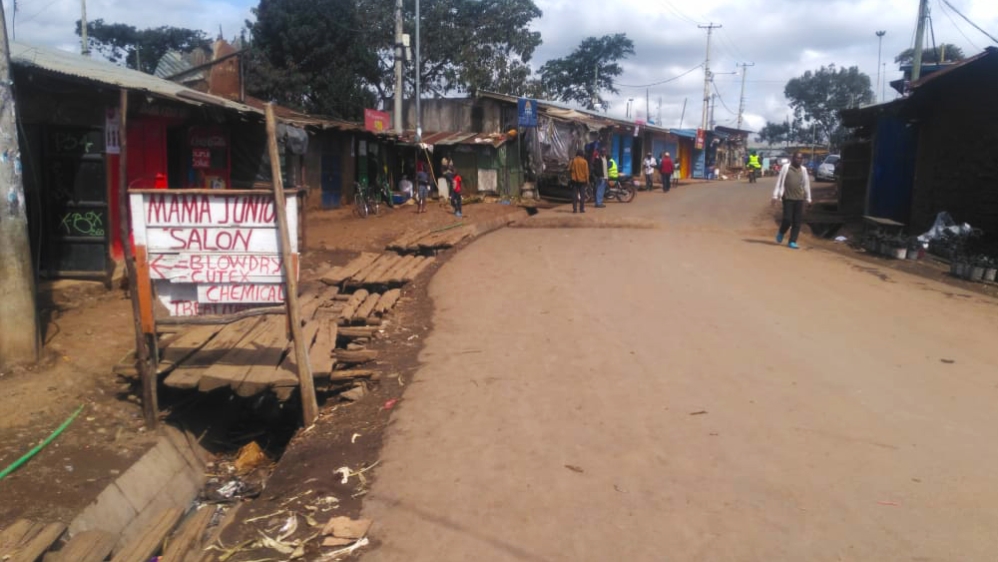‘No work, no food’: For Kibera dwellers, quarantine not an option
Residents of Nairobi’s vast informal settlement prepare for coronavirus but still need to work to put food on the table.

Nairobi, Kenya – Take a stroll down Kibera avenue and at first glance you would not realise that the world is in the midst of a coronavirus pandemic. Vendors are still selling vegetables and motorbike drivers continue to congregate at intersections, waiting for customers.
Yet, at closer inspection, it is obvious that things have slowed down. Increasing numbers of roadside stands are empty and the main thoroughfare of the largest informal settlement in Kenya‘s capital, Nairobi, is less crowded than usual.
Keep reading
list of 3 itemsKenya blocks entry for non-residents in virus response
Kenya bans public events after first case of coronavirus
Rhoda Mukii, a roadside produce vendor in Kibera, voices her frustration at how quickly things have changed for her business.
“Now people are not going to work and I’m not earning as much as before. We need the government to work faster to fix this issue.”
Drastic measures
The new coronavirus is still a relatively recent arrival in Kenya, with seven cases confirmed in one week.
However, the government has already taken a series of strict measures, including closing schools, banning major public events and barring entry to the country to everyone except citizens, in an attempt to curb the outbreak, which has been declared a pandemic by the World Health Organization.
Following the official announcement of the drastic measures by President Uhuru Kenyatta on March 15, Kenyans have begun to take the virus seriously. Hand washing is being carried out more frequently and the government is reducing the cost of water for those who cannot afford it.
However, despite calls for social distancing and quarantining, residents of poorer areas of the city continue to go outside, interacting with others and working to support their families.
Many residents of Kibera, home to hundreds of thousands of people, are aware of the risks coronavirus poses, especially in a crowded and underserved neighbourhood such as their own, which could be devastated should the outbreak sweep through and overwhelm already strained healthcare and social safety nets.

Yohana Ondieki, who prefers to go by the name Santos, is a community leader in the Silanga neighbourhood of Kibera. He runs the Kibera Seven Kids group, which provides discount schooling, free meals for children and promotes a wide range of outreach activities in the area.
Like schools around the country, his group has closed and the children have been told to stay at home, though many continue to come by for weekly distribution of staple foods such as maize, which he has continued to offer despite the crisis.
For Santos, the primary issue in Kibera is that people simply cannot stop working because of the pandemic.
“People are scared, but here in the slum we work hand-to-mouth,” he said. “If you don’t work you don’t eat. If you earn one dollar you can’t save it, you must feed your whole family.”
Making matters worse, added Santos, is that the majority of the area’s residents must travel daily to their jobs.
“We don’t know if people working in the city centre will bring it [virus] back with them. When they come back in the evening, we are scared to interact with them.”
Asked whether social distancing is being practised, Santos laughed. “That’s not possible in the slums, when we are getting water it’s one metre apart. We live room to room, we are sharing one wall. To work we must board the boda bodas [motorbikes], we must board the matatus [minibuses]. In the slum we must interact with other people.”

It has become apparent that even with proper education, being able to practise actions such as social distancing is a privilege for those who can afford the space and time off work. Residents of Kibera simply lack the resources to prepare for the virus.
While people living in Nairobi’s leafy suburbs and high-rise apartments stock up on food and prepare for a lengthy quarantine, the city’s poorer residents get by day-to-day. Even getting more water for hand washing is an extra expense and requires a trip to a vendor when it is not pumped to your house.
Additionally, Kenya lacks an effective public health system. Those with money and private health insurance take comfort in the fact that should they fall sick, treatment at one of the capital’s private hospitals will be an option.
Meanwhile, the clinics that serve neighbourhoods such as Kibera, which are understaffed and underequipped, fear being overwhelmed by coronavirus patients should the virus get out of hand. If the virus spreads, the current system will almost certainly be unable to handle it.
Despite the risks, most of the working class have no choice but to remain there.
Santos said that to save money, some people are sending their children to family members in rural villages so that they have fewer mouths to feed in the city – and if the situation deteriorates more may choose to go.
“For now, we are just listening to the news and preparing for government directions,” Santos said.
“As long as the government keeps things affordable, it’s OK. But if people really have to stay home, no one will be earning anything. It will be hard even to afford water. It would not be a good scenario.”
